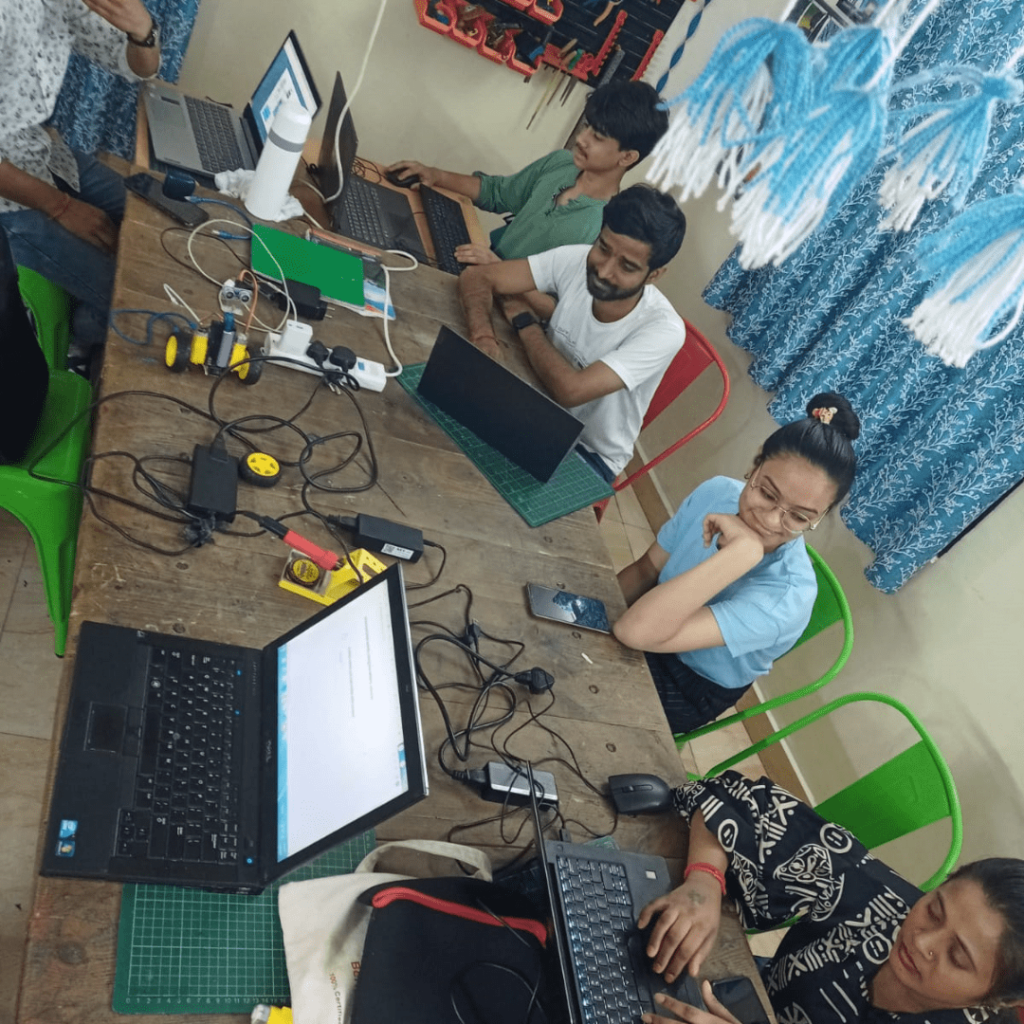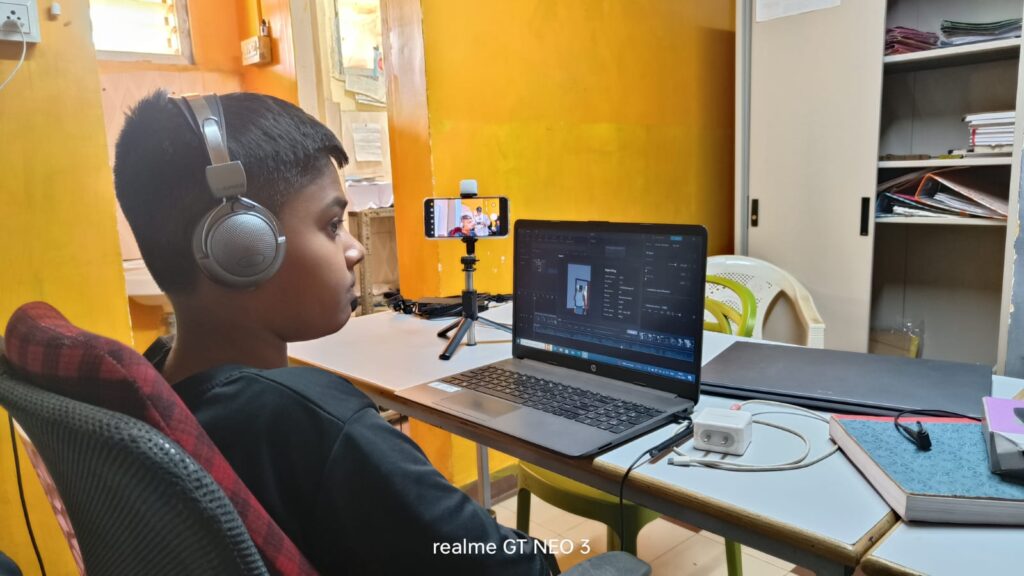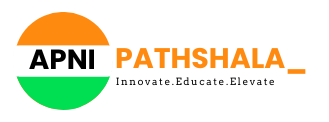Unlock Lifelong Learning: Your Guide to Constant Growth

In a rapidly evolving world, the concept of education extends far beyond the confines of traditional classrooms and formal schooling. Lifelong learning, the continuous pursuit of knowledge and skills throughout one’s life, has become essential for personal and professional growth in the 21st century. Embracing lifelong learning is not just a means to stay relevant in a competitive job market; it’s a mindset that fosters curiosity, adaptability, and resilience in the face of change. In this blog, we’ll explore the importance of lifelong learning and pathways to constant growth in both personal and professional realms. The Value of Lifelong Learning Lifelong learning is more than just acquiring qualifications or earning degrees; it’s about cultivating a mindset of curiosity and intellectual exploration that extends throughout one’s life. In today’s knowledge-based economy, where technological advancements and global connectivity are reshaping industries and job roles, the ability to learn, unlearn, and relearn is crucial for staying adaptable and thriving in the face of uncertainty. Lifelong learning empowers individuals to remain agile and resilient in the face of change, opening up new opportunities for personal fulfillment and professional advancement. Pathways to Lifelong Learning There are countless pathways to lifelong learning, ranging from formal education programs and online courses to self-directed study and experiential learning opportunities. The key is to find learning experiences that align with your interests, goals, and learning style. Whether you’re passionate about exploring new subjects, mastering a specific skill, or advancing your career, there are abundant resources and opportunities available to support your lifelong learning journey. Online Learning Platforms The rise of online learning platforms has democratized access to education, making it easier than ever to engage in lifelong learning from anywhere in the world. Platforms like Coursera, Udemy, and Khan Academy offer a diverse array of courses and tutorials covering topics ranging from technology and business to arts and humanities. With flexible schedules and self-paced learning options, online learning platforms provide opportunities for continuous skill development and personal growth. Formal Education Traditional academic institutions such as universities and colleges offer a wide range of degree programs, certificates, and continuing education courses that cater to learners of all ages and backgrounds. From undergraduate degrees to professional development workshops, formal education provides structured learning experiences that can deepen your knowledge and expand your skill set in specific areas. Self-Directed Study Self-directed study allows individuals to pursue learning independently, tailoring their educational experiences to their own interests and goals. Whether through reading books, watching documentaries, or engaging in hands-on projects, self-directed learners have the freedom to explore subjects at their own pace and in their own way. This approach to lifelong learning fosters autonomy, creativity, and a deep sense of ownership over one’s educational journey. Professional Development Lifelong learning is essential for professional development and career advancement. In today’s fast-paced job market, staying abreast of industry trends, emerging technologies, and best practices is critical for remaining competitive and adaptable. Professional development opportunities such as workshops, conferences, and networking events provide avenues for expanding your skill set, building your professional network, and staying current in your field. Conclusion: Cultivating personal growth through education for the soul is a lifelong journey of self-discovery, self-improvement, and self-transformation. By embracing practices that foster self-awareness, emotional intelligence, mindfulness, and spiritual development, we can awaken our innermost selves, tap into our inherent potential, and lead lives of purpose, authenticity, and fulfillment. As we embark on this journey of personal growth, let us cultivate a spirit of curiosity, openness, and humility, and embrace the transformative power of education for the soul to enrich our lives and nurture our humanity. Frequently Asked Questions How can I find the time for lifelong learning amidst my busy schedule? Finding time for lifelong learning can be challenging, especially with the demands of work, family, and other commitments. However, it’s important to prioritize learning as an integral part of your personal and professional development. Look for opportunities to integrate learning into your daily routine, such as listening to educational podcasts during your commute, reading articles or books before bed, or setting aside dedicated time on weekends for online courses or skill-building activities. What if I'm not sure what I want to learn or where to start? If you’re unsure about what you want to learn or where to start your lifelong learning journey, don’t worry – exploration is part of the process! Take some time to reflect on your interests, passions, and career goals. Consider what topics or skills you’ve always been curious about or what challenges you’d like to overcome. Once you have a sense of direction, explore different learning resources, courses, or workshops related to your areas of interest to see what resonates with you. How can I stay motivated and maintain momentum in my lifelong learning journey? Staying motivated in your lifelong learning journey requires a combination of self-discipline, intrinsic motivation, and external support. Set clear goals and objectives for your learning journey, breaking them down into smaller, manageable tasks or milestones. Celebrate your progress along the way and acknowledge your achievements, no matter how small. Surround yourself with supportive peers, mentors, or accountability partners who can cheer you on and hold you accountable. Remember that lifelong learning is a marathon, not a sprint – pace yourself, stay focused on your goals, and enjoy the journey of continuous growth and discovery. References: Siemens, G. (2005). Connectivism: A Learning Theory for the Digital Age. International Journal of Instructional Technology and Distance Learning, 2(1), 3-10. In this seminal article, George Siemens introduces the concept of connectivism, a learning theory that emphasizes the importance of networked learning environments, digital technologies, and the interconnected nature of knowledge in the 21st century. Brown, P., Lauder, H., & Ashton, D. (2011). The Global Auction: The Broken Promises of Education, Jobs, and Incomes. Oxford University Press. “The Global Auction” explores the impact of globalization, technological change, and rising income inequality on education and the workforce, offering insights into the changing landscape of work and the importance of lifelong
Self Mastery: The Path to Personal Growth

Apni pathshala Self Mastery: The Path to Personal Growth http://13.233.83.213/wp-content/uploads/2024/04/Snapinsta.app_video_10000000_933984664964787_121505535978732651_n-1.mp4 Self Learning What is Self Learning? Self learning is the process of acquiring knowledge, skills, or understanding on one’s own without direct supervision or instruction from others. It involves taking personal responsibility for one’s own learning journey. The Importance of Self-Learning Self-learning enables individuals to take control of their personal growth and development. It fosters independence, critical thinking, and self-motivation, while also promoting a proactive approach to learning. The Benefits of Mastering Self Learning By mastering self learning, individuals can adapt to changing circumstances, improve problem-solving skills, and enhance their overall confidence and resilience. Developing a Growth Mindset Embracing Challenges and Failures Embracing challenges and failures as opportunities for growth rather than setbacks is key to developing a growth mindset. Viewing setbacks as learning experiences can help individuals bounce back stronger. Cultivating Curiosity and OpennessCultivating curiosity and openness to new ideas and perspectives can broaden one’s horizons and stimulate continued learning. Being open-minded allows for fresh insights and creativity. Setting Goals and Seeking FeedbackSetting specific, achievable goals helps individuals stay focused and motivated throughout their learning journey. Seeking feedback from peers, mentors, or experts can provide valuable insights for improvement. Building Self-Discipline Creating Effective Study Habits Creating effective study habits, such as setting a routine, organizing study materials, and finding a conducive learning environment, can boost productivity and focus. . Overcoming Procrastination and Distractions Mastering time management techniques like prioritizing tasks, setting deadlines, and avoiding distractions is essential for staying on track with learning goals. Overcoming Procrastination and DistractionsOvercoming procrastination and distractions through techniques like breaking tasks into smaller steps, setting timers, and creating a structured study schedule can help maintain focus and productivity. Expanding Knowledge and Skills Diversifying Learning Sources Diversifying learning sources, such as books, online courses, workshops, and practical experiences, can provide a well-rounded education and different perspectives. Seeking Mentorship and NetworkingSeeking mentorship from experienced individuals in the field of interest and networking with like-minded individuals can offer valuable guidance, support, and opportunities for growth. Applying Knowledge in Real-Life Situations Applying acquired knowledge and skills in real-life situations can deepen understanding and facilitate practical application, leading to mastery and expertise in a particular area. Nurturing Continuous Self-improvement Reflecting on Progress and Learning Reflecting on progress, achievements, and setbacks allows individuals to assess their growth, learn from experiences, and identify areas for further improvement. Adjusting Goals and Strategies Adjusting goals and strategies based on feedback, changing circumstances, or personal reflection is key to continuous improvement and adapting to new challenges. Celebrating Achievements and Practicing GratitudeCelebrating achievements, no matter how small, and practicing gratitude for opportunities, resources, and support received along the learning journey can boost motivation and positivity. Summary By embracing self-learning, developing a growth mindset, building self-discipline, expanding knowledge and skills, and nurturing continuous self-improvement, individuals can unlock their full potential for personal growth and development. Pranav Gorathe – Developer Frequently Asked Questions How can I stay motivated to continue self learning? Setting clear goals, finding personal meaning in the learning process, and seeking support from peers and mentors can help maintain motivation. Is self learning only for academic or professional development? Self learning can encompass a wide range of skills and knowledge, including personal hobbies, interests, and self-improvement goals. It is a versatile tool for lifelong learning and growth.
